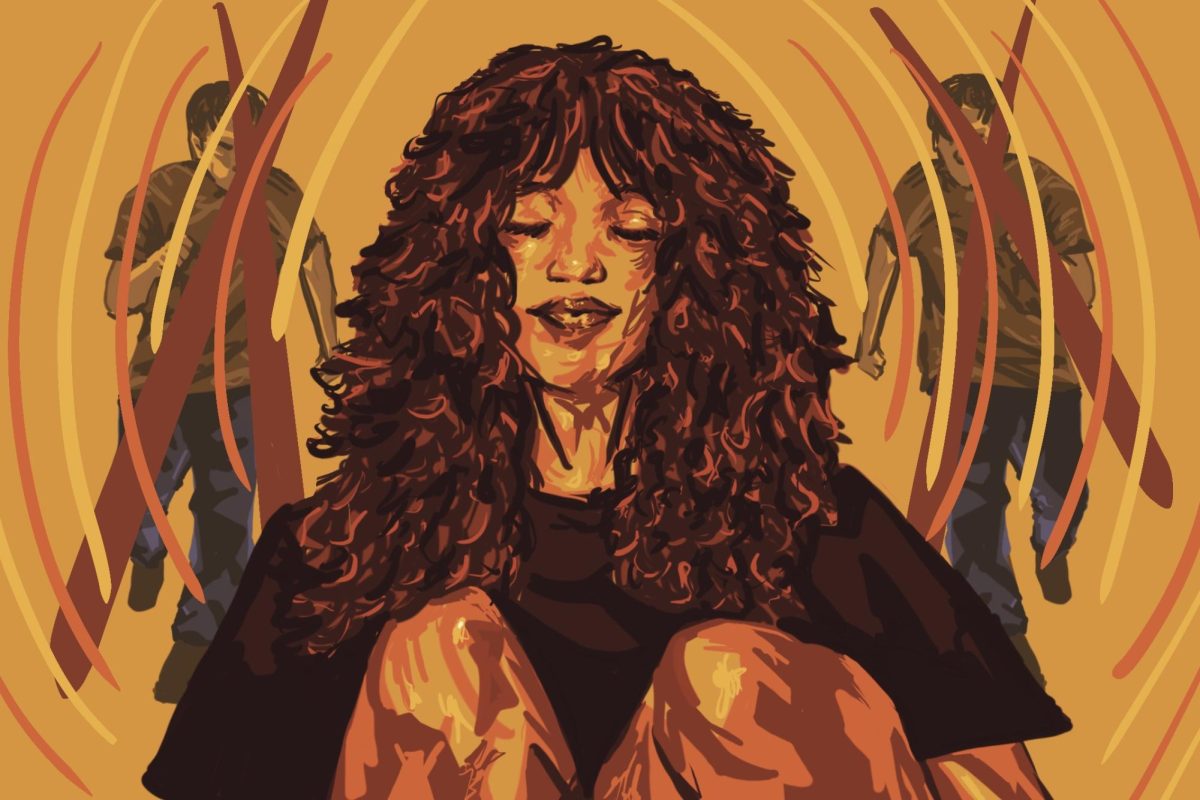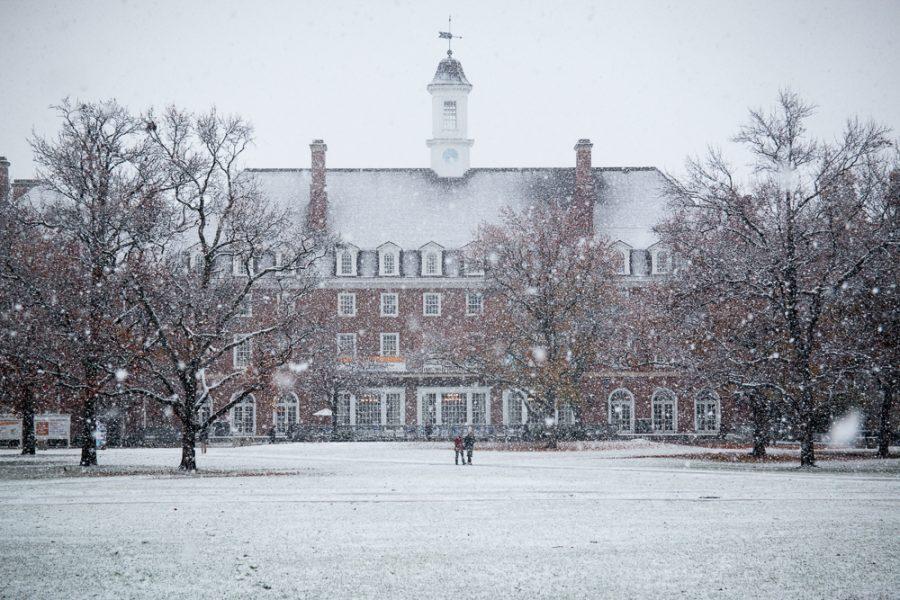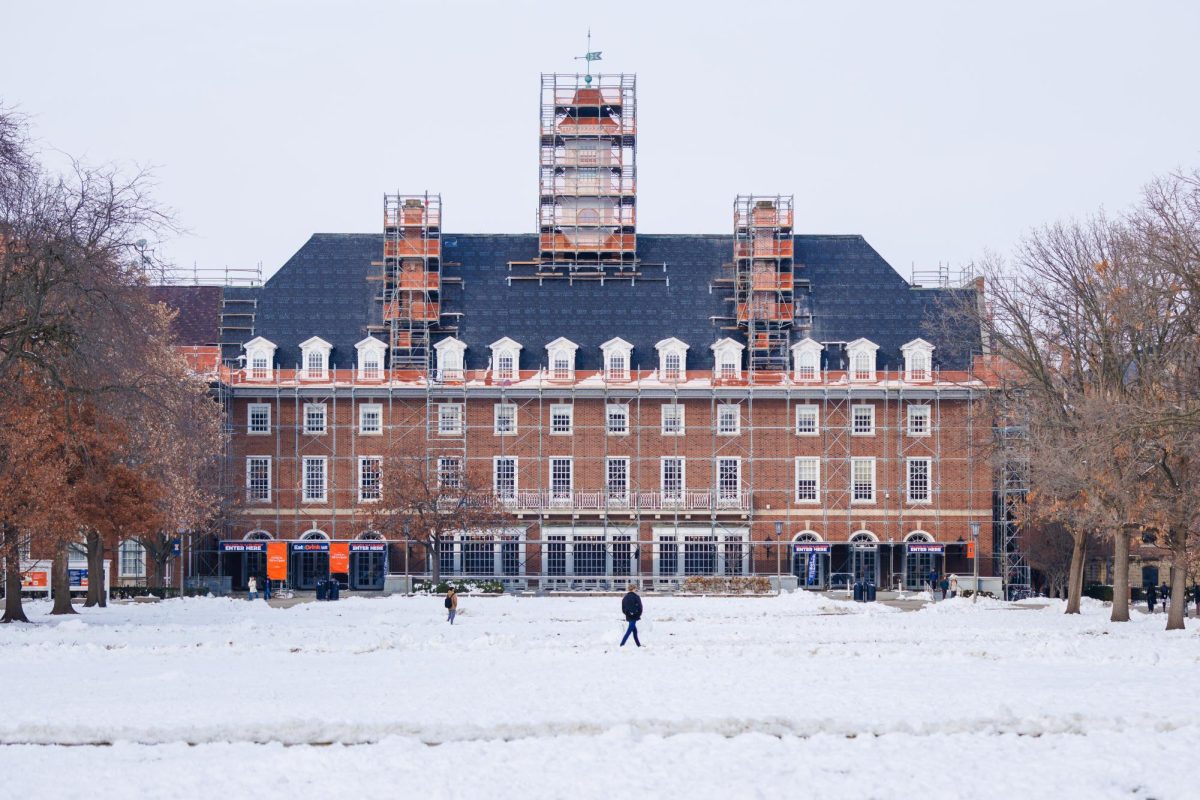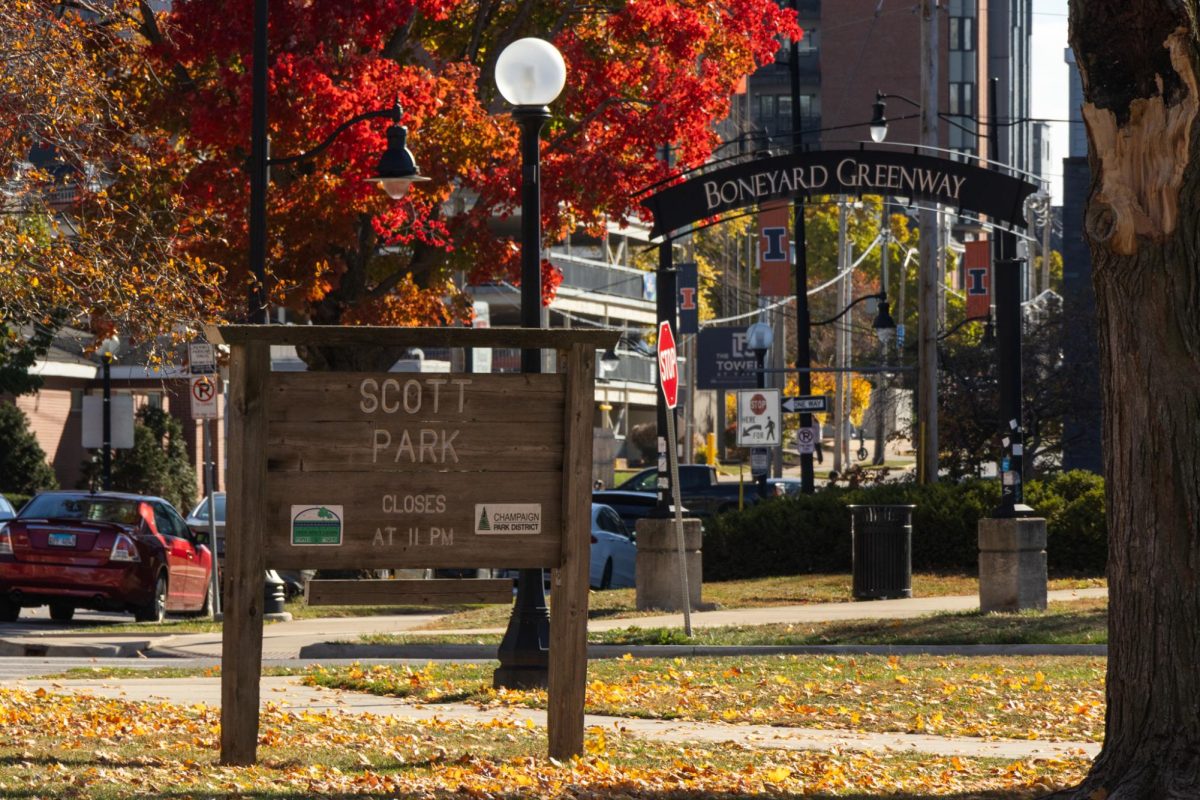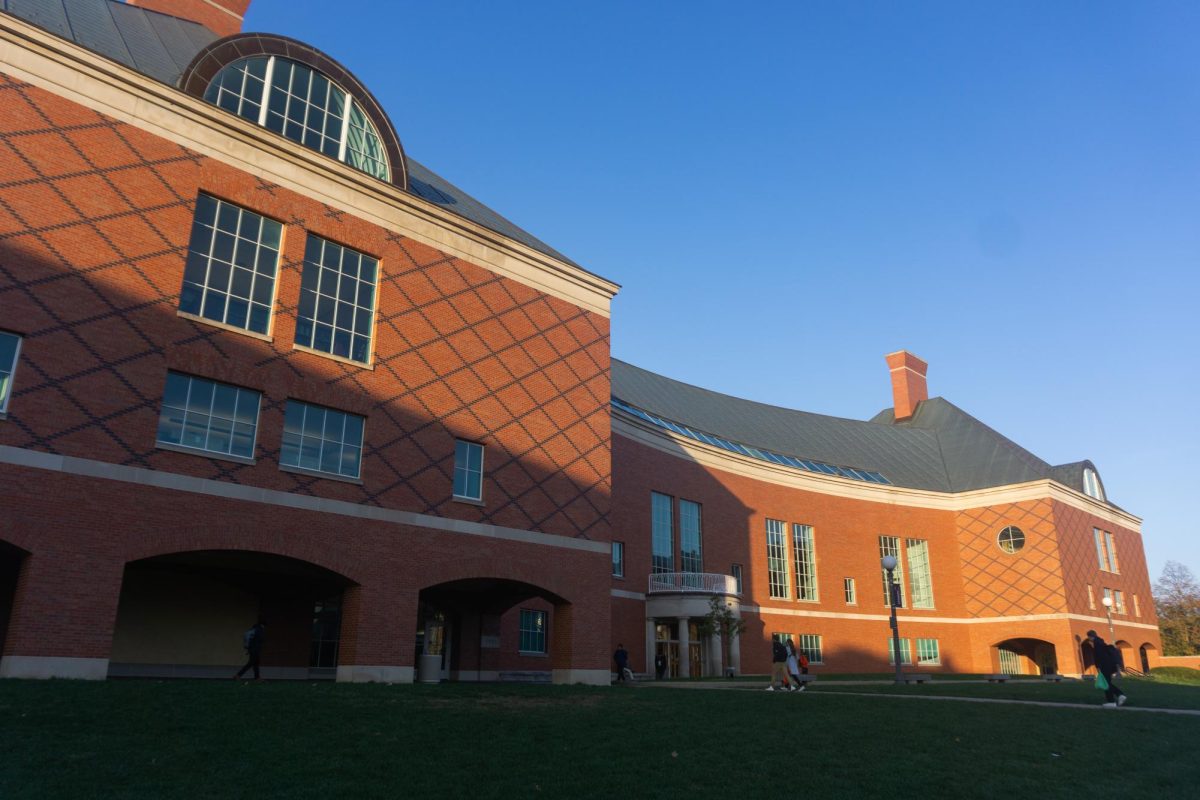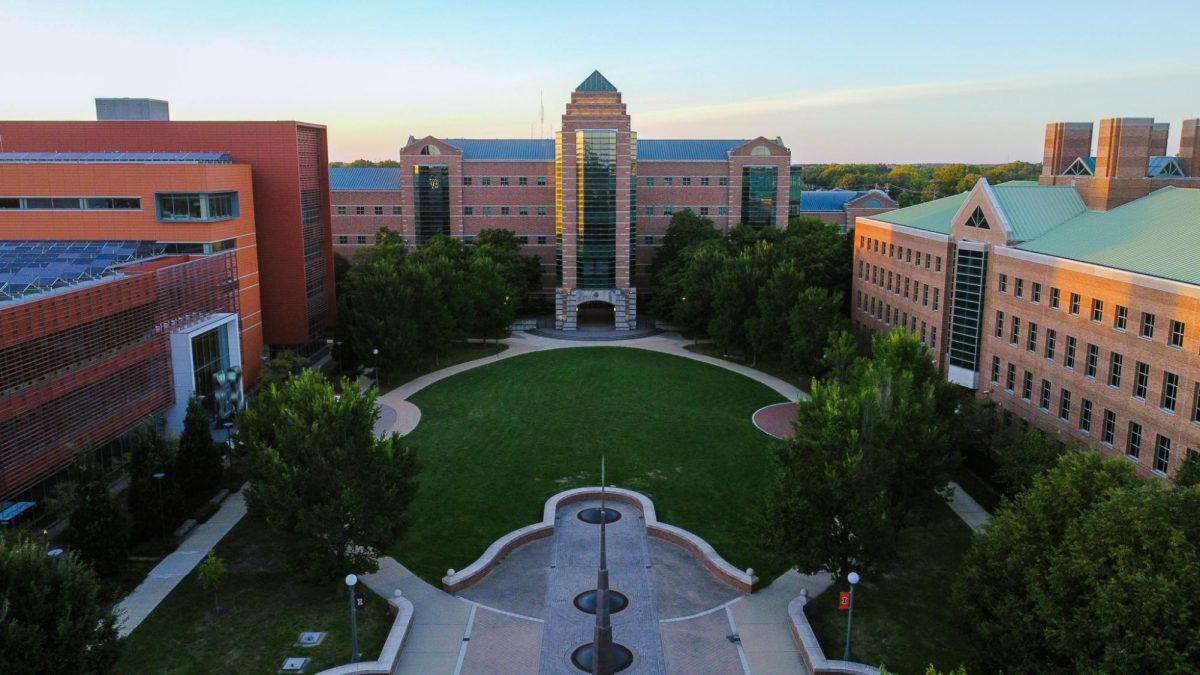No sex. No dating. No marriage. No children. These are the four pillars — or “B”s — of the initiative South Korean feminists have dubbed the 4B movement.
The “B” in the movement’s English name derives from the Korean translations of the four tenets: “bihon” (no marriage to men), “bichulsan” (no childbirth), “biyeonae” (no dating men) and “bisekseu” (no sex with men).
While the social movement has existed in South Korea since around 2017, it surged in popularity in the United States following Donald Trump’s win in the 2024 presidential election.
Jordan Pascoe, George A. Miller visiting professor, studies feminist philosophy, breaking down the origins and social implications of the movement.
“I think what’s interesting about the 4B movement is that it comes out of a number of strains of things that were going on in South Korea in the 2010s that have since sort of been replicated in the U.S.,” Pascoe said.
Get The Daily Illini in your inbox!
In 2016, a 23-year-old woman was stabbed to death by a male perpetrator in a public restroom in Seoul, spurring feminist discourse in South Korea on femicide — the gender-based murder of a woman or girl by a man, as defined by the Merriam-Webster Dictionary.
The Escape the Corset and #MeToo movements also emerged in the late 2010s, drawing attention to the sexual oppression women face regularly in South Korea.
“We call it the feminism reboot,” said Seowon Choi, graduate student studying political science at Seoul National University. “Those two movements are intertwined with each other.”
Choi’s research surrounds the idea of democratic backsliding in South Korea, specifically branching off into political lesbianism and the influence of Monique Wittig’s feminist theory.
She discusses how the concept of political lesbianism became included in the 4B discourse, introducing the idea of rejecting heterosexuality as a political statement.
“Some feminists who practice the 4B movement wanted to practice political lesbianism,” Choi said. “Some people even considered if there would be any possibility of being a lesbian or not, and that sparked the discourse on political lesbianism.”
While feminism in the U.S. has been received with relative tolerance, the feminist movement in South Korea is consistently rejected and placed under attack.
“In Korea, the word ‘feminism’ became a dirty word, and it is a slur that is used to insult women,” Choi said. “It feels so bad that, even in university, I didn’t really feel safe talking about feminism.”
Choi closely observes feminist movements in other countries. She acknowledges that South Korea views the seemingly mundane concept of “girl power” as incredibly radical.
“Anti-feminism is surging, and I feel like it is different from the United States,” Choi said. “In Korea, there are men who believe that there is no gender inequality. They believe that gender equality has been set up, and they also believe that it is irrational to support feminism.”
Choi views the 4B movement in South Korea as centered around keeping women safe. She sees pushback against the feminist movement as South Korea’s denial of the injustices women face. In contrast, Choi views it more as an “anti-woke” sentiment in the U.S.
Pascoe tracked and studied the #MeToo movement as it spread to countries outside of the U.S. She looked at how different sexual cultures led to various interpretations of the movement.
“Americans are really kind of myopic,” Pascoe said. “We often think what’s happening here is how it is everywhere.”
Pascoe first noticed an uptick in the 4B movement’s popularity in the U.S. when Senate Bill 8 passed in Texas.
Also known as the Texas Heartbeat Act, it “prohibits a physician from performing or inducing an abortion after a ‘fetal heartbeat’ has been detected,” according to the Texas State Law Library.
“As soon as this vision of forced reproduction came to national consciousness, there were definitely women talking about 4B as a potential strategy for response to this,” Pascoe said.
The 4B movement saw a similar surge in U.S. presence after Dobbs v. Jackson Women’s Health Organization, in which the Supreme Court held that the U.S. Constitution does not confer a right to abortion.
Pascoe compares the 4B movement to “Lysistrata” by Aristophanes, an ancient Greek comedy about a woman-led sex strike.
“Definitely when Dobbs passed, there was a lot of ‘Let’s do Lysistrata,’ and South Korean women being like, ‘Girl, that’s just 4B,’” Pascoe said. “This often happens in social movements where someone thinks they’re inventing something new, and someone else is like, ‘Yeah, we’re already doing that.’”
Pascoe came of age during the Clinton administration. She recalled former President Bill Clinton’s affair with Monica Lewinsky as a formative memory for her initial understanding of feminism.
“There’s this article where a bunch of the top feminists in the world got together and had lunch to talk about Clinton and Lewinsky,” Pascoe said. “All of them are basically, like, ‘I don’t know. I think it’s sexy,’ which is bonkers to think about now.”
The 4B movement and other modern feminist efforts reject fraternizing with men as a key pillar of their cause. Pascoe grew up when that message was reversed under the same cause of women’s rights.
“That’s how ascendant this idea of pro-sex, pro-hookup culture feminism was when I was young, and to me, that was the dominant strain of feminism for my college years,” Pascoe said. “If you were a feminist, you were out there hooking up and having sex because that’s what they taught us in ‘Sex and the City.’”
Pascoe finds inspiration in the commitment of this generation’s young feminists to rethink previous strains of feminism.
“I think that American women being in solidarity with Chinese and South Korean women is really powerful,” Pascoe said. “It’s a really powerful critique of American sexual culture and its ties to capitalism, misogyny and white supremacy.”
Pascoe uses Elon Musk as an example of how American ideals on forced reproduction are problematic. She argues they are not only inherently patriarchal and misogynistic but also racist and nativist.
Musk currently has 12 children with three different partners. He continues to offer his sperm to friends and acquaintances via in vitro fertilization due to his determination to counter population decline.
“I would say that it’s important to take an intersectional perspective on this and not simply think about it from the vantage point of gender and patriarchy, but also to think about how race structures how we think about sex,” Pascoe said.
A sophomore in LAS who wishes to remain anonymous hopes to pursue a career in law and politics. She considers the divisiveness and polarization of politics in the U.S. and how the 4B movement feeds that narrative.
“I think that’s the root of a lot of the issues that we’re having right now,” the student said. “While I understand where the movement is coming from, it’s not something that I see value in for me because I’m going to need to kind of understand both sides to a coin, even if I don’t agree with it.”
This student identifies as a woman who dates other women. The student states she struggled with not dating men out of compulsory heterosexuality rather than attraction.
She condemns the commercialization of queerness in the media today as a detriment to queer identities. She believes that the 4B movement is feeding into that commodification.
“It’s just kind of marketed as this super easy second option where, if you don’t want to deal with men anymore, you have a backup choice,” she said. “But it’s not a backup choice for me. It’s just a truth about who I am.”
Although not explicitly mentioned, her description of sexuality being a choice aligns with the definition of political lesbianism.
Pascoe references “Compulsory Heterosexuality and Lesbian Existence,” an essay by lesbian feminist poet Adrienne Rich, as a way to characterize the difference between lesbian existence and lesbianism.
“Her argument is basically that the patriarchy makes heterosexuality compulsory in all these ways that do damage to women, and the way to resist this is through what she calls lesbian existence,” Pascoe said. “Which is not lesbianism. It’s not being queer. It is deciding to orient most of your solidarity, most of your resources and most of your relationships to other women.”
To the anonymous student, the 4B movement challenges the line between lesbian existence and lesbianism in a way that harms queer rhetoric.
She also feels that the 4B movement fails at holding men accountable for the actions these women are battling against.
“I think that this also ties into the fact that the 4B movement is not the biggest thing,” she said. “I don’t think it does hold men accountable; it just isolates them from hearing a left-leaning perspective.”
The 4B movement undeniably opens an avenue for discourse on queer culture and feminism worldwide.
Different women’s opinions will vary due to where they are from and how their identities relate to the 4B movement.
Whether it makes Choi feel safe in South Korea, inspires Pascoe’s belief in the younger generation or challenges the anonymous student’s queer existence, the 4B movement is a critical examination of the breadth of feminist movements internationally.



